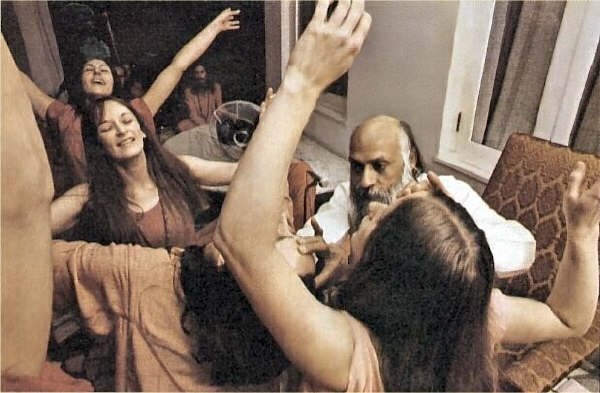If you can laugh at yourself when any of your illusions fall away, soon you will be able to live without illusions, to live without hallucinations, to live without projections. And to live without all these things means to live in peace, and to live in silence, and to celebrate the small things of life.
OSHO
An old monk with his young disciple was passing through the forest, going to another town. But the young man was very much puzzled, because the old man had never walked like that — he was almost running and clutching his bag.
And once in a while he would feel something inside the bag. The young man could not imagine what he had in the bag. And the old monk was again and again asking, "Will we be able to reach the town before sunset?"
The young man said, "Even if we don't reach, we have nothing to fear. We can stay in the forest. We have stayed here many times, so it is not new. But today you seem to be strange."
The old man said, "We will discuss it later on. First, be fast. I don't want to stay in the forest tonight."
By the side of the road was a well, and the sun was just setting. Before the sun set they washed themselves. They were really tired. They drank, and while the old man was washing his face he gave his bag to the young man and told him, "Be careful."
The young man said to himself, "He has never been this way before." And out of curiosity he looked into the bag. In the bag he was carrying two bricks of gold. Now everything was clear: why the monk cannot stay in the forest, why for the first time he is so afraid.
While the old monk was washing his face and doing his evening prayer, the young man threw those two bricks into the forest, found two stones weighing almost the same as the bricks, and put them in the bag.
The old man finished his prayer in half the time — he was in such a hurry! He immediately took the bag from the young man and the weight showed him that everything was okay. They rushed on.
After a mile, it was getting dark. The old man said, "It seems to be difficult to reach to the town, and this place is dangerous."
But the young man said, "Don't be afraid. As far as the danger is concerned, I have thrown it by the side of the well."
He said, "What do you mean, you have thrown the danger by the side of the well?"
He said, "Look into your bag and you will know."
He looked into the bag and he said, "My God!" The old man laughed, threw the bag, and sat under a tree; he could not stop laughing.
The young man said, "Why are you laughing so much?"
He said, "I am laughing because you have done the right thing, and for almost one mile I have still been befooling myself with those stones, thinking they were gold. Now we can sleep under this tree. It is good. There is no fear and there is no hurry."
He could have been angry at the young man and missed the point. But he laughed, laughed madly, because he could see the point: "It was so stupid of me. The young man has proved far more intelligent than me. My own disciple had to teach me the lesson."
They slept the whole night, and in the morning the old man touched the feet of the young man and thanked him, "Although I am your master, you helped free me from an illusion. And I slept so deeply the whole night. I had not slept for a few nights because of that bag; those golden bricks would not let me sleep.
Even in the night I was groping in the bed and trying to find out whether they were there or not. Those bricks had become so important that I lost my joy, I abridged my prayers, I abridged my meditation."
As far as existence is concerned, gold and rock are not different — it is human illusion, we have projected it. If man is no longer in this world, gold will not be gold; although it will still be itself, there will be no difference in valuation between it and a rock. The valuation and the difference is our projection — and then we suffer.
So the insight in that small anecdote is great. If you can laugh at yourself when any of your illusions fall away, soon you will be able to live without illusions, to live without hallucinations, to live without projections. And to live without all these things means to live in peace, and to live in silence, and to celebrate the small things of life.
OSHO


